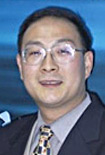|
 |
|
(COURTESY OF JIN CANRONG) |
Since President Barack Obama assumed office on January 20, Sino-U.S. relations have gotten off to a good start: More high-level exchanges, closer economic ties and smoother collaboration in remedying the global financial crisis have been fully symptomatic of this new cooperation.
But promising beginnings cannot obscure already existing dilemmas, and the two countries must not shirk from these problems.
Prevailing quandaries
When it comes to problems in Sino-U.S. relations, trade protectionism definitely takes the lead against the backdrop of the global financial crisis. As trade disputes increase, the trade environment keeps deteriorating in a downward spiral.
Human rights, on the other hand, have long been the issue affecting the stable development of Sino-U.S. relations. Disputes over topics such as Tibet and democracy have proven difficult to resolve.
Meanwhile, with the progress of China's military modernization, the anxiety of the United States will continue to grow. Consequently, Washington will attempt to impose more pressure on China in terms of military transparency.
Quarrels will also continue between the two sides over greenhouse gas emissions and the sharing of responsibilities in the fields of climate change and new energy.
In addition, competition for leadership will grow fiercer between the two sides regarding Asia-Pacific regional cooperation. The United States' high-profile return to Southeast Asia is obviously a blow to Beijing. China's burgeoning cooperation with other East Asian nations also worries Washington, in that it could be edged out of overall Asian cooperation.
Then there is the Taiwan question. Although China and the United States have maintained limited cooperation when it comes to containing "Taiwan independence" and maintaining the stability of the Taiwan Straits, the question remains sensitive in Sino-U.S. relations.
Further, the United States itself faces domestic pressures in terms of policy coordination. With political stars gathering in Obama's decision-making team, different political orientations of the multiple departments increase the difficulty for policy coordination.
Difficulties also lie in coordination between Obama's decision-making team and other political forces in the United States. As the honeymoon between the Obama administration and the American people draws to a close, the political forces once in awe of the new president's previously high approval ratings are now raising their voices. Thus the domestic constraints on Obama's China policies have grown bigger.
Within China, on the other hand, the diversification of domestic interests and the growth of social forces have increased the difficulty for coordination of diplomatic policies toward the United States.
Disputes between the two countries tend to impact the interests and feelings of the Chinese public. When this kind of impact reaches a certain degree, the groups concerned will impose pressure on Beijing, thus complicating policy coordination at home.
The United States has realized its decline in the international arena due to its defective foreign policies coupled with the severe impact of the global financial crisis. Now it is resorting to a series of adjustments.
Domestically, it is exploring new areas of economic growth through new energy development, promoting social security via social security and health care reforms, and restoring its leading position in the global economy by reforming its financial system.
In terms of foreign policies, it is distributing responsibilities to other nations through "smart power" diplomacy, trying to win their support.
As China is the main target of "smart power" diplomacy, conflicts in responsibility sharing will be more obvious in Sino-U.S. relations. Nonetheless, China is not ready for this. The Chinese public and élites still regard themselves as part of a developing country while focusing on managing internal affairs.
Thus, for the foreseeable future, Beijing will maintain its defensive posture. It will give priority to solving domestic problems, rather than expanding beyond borders to create a new international system.
By the end of 2008, as it reviewed its reform and opening up over the past 30 years, just ahead of celebrating the 60th anniversary of the founding of the People's Republic, China greatly presented its national strength.
Chinese leaders have become increasingly confident about "building socialism with Chinese characteristics." But domestic academic circles hold that China's experiences are not enough to form theories, thus seldom advancing the topic of the "Chinese model."
| 